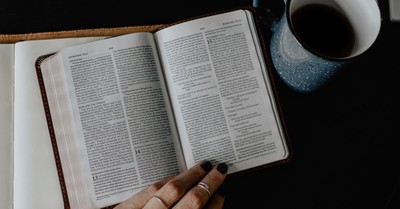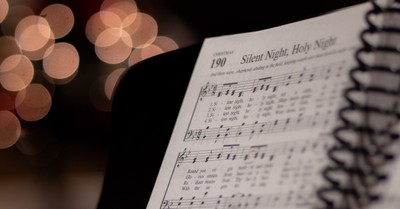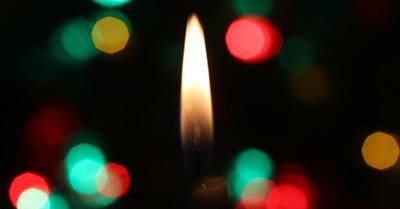Why Neiman Marcus Dropping ‘Christmas’ from Holiday Catalog Should Be a Wake-Up Call for Christians
For ninety-eight years, Neiman Marcus published a gift catalog they’ve called the “Christmas Book.” This year, for the first time, it will be known as the “Holiday Book.” The Dallas Morning News reports that the book’s name was changed “in the spirit of inclusivity as it welcomes customers of all backgrounds, religions, and traditions to celebrate the season.”
To which we might ask: Without Christmas, what “season”?
Imagine publishing a wedding or baby gift book without acknowledging the existence of weddings or babies. But such is the logic of secularism: it “frees” us as creatures to deny the existence or relevance of our Creator, to imagine ourselves as the masters of our lives even though we did not bring ourselves into this world and cannot prevent the day we leave it.
Despite our obvious and painful finitude, we somehow believe we have the freedom and power to assess the past, control the present, and imagine the future according to our personal beliefs. From those who are reinterpreting American history through their critical theory lenses to those who feel free to define marriage as they wish, end the lives of preborn babies as they choose, and reject faith in “God as described in the Bible,” we are increasingly post-Christian and even post-Christmas culture.
How did we get here?
What can we do about it today?
“Utopia” or “Eutopia”?
Cultural commentator Jonah Goldberg recently wrote that the Judeo-Christian worldview bequeathed to Western culture a number of foundational tenets, including science (from the belief that a single creator made a universe that is predictable and rule-driven) and universal brotherhood (from the belief that we are “all sons of God”). However, there’s an unpopular side to the biblical worldview: It also claims that humans are finite and fallen, a perspective that Goldberg calls the “tragic” vision.
In his telling, we need “custom, tradition, experience, history, religion, and social hierarchy” (a list he borrows from Edmund Burke) to improve our state in this broken world. Nor does human nature change for the better over time. As Goldberg notes, “We can get better—or worse—at making cathedrals and skyscrapers, but the bricks never stop being bricks.” The social and cultural progress we have made is “not stored in our genes but in institutions and traditions.”
By contrast, what Goldberg calls the “utopian” vision claims that humans using unaided reason and the tools of science can improve themselves and their world without relying upon the institutions and traditions they insist are holding us back. Many point to damage caused by these institutions and traditions (Jim Crow laws, clergy abuse, etc.) as evidence for their position.
Many secularists think they can invent new rituals to do what religion used to do. Like Aristotle, they believe they can locate the transcendent in the imminent, using what is human to do what was once thought to be divine.
But take the “Holiday Book” as an example. Are materialistic gifts really the deepest meaning of Christmas? Can presents that perish give the gift of eternal life? And who, by using unaided human reason, would have conceived of a God who became one of us that we might be one with him? Of a Creator of the universe who chose to be born as a helpless baby and die on a cruel cross for your sins and mine?
According to Goldberg, we must choose between striving for utopia (which literally means “no place” because it cannot exist) and eutopia (which means “the good place”). The eutopian “looks at the world as it is in front of his or her face and says, ‘I can make this better.’”
The question, of course, is how.
“When I fall, I shall rise”
The graphic designer and illustrator Seymour Chwast noted: “If you dig a hole and it’s in the wrong place, digging it deeper isn’t going to help.”
In a time of grave immorality (Micah 6:16–7:6), when it seemed that “there is no one upright among mankind” (v. 2), the prophet responded: “As for me, I will look to the Lᴏʀᴅ, I will wait for the God of my salvation; my God will hear me” (Micah 7:7). He then boldly declared:
“Rejoice not over me, O my enemy; when I fall, I shall rise; when I sit in darkness, the Lᴏʀᴅ will be a light to me” (v. 8).
No matter how deep your darkness is, you can make Micah’s declaration yours today.
If you forsake self-reliance for Spirit-dependence, turning from “holidays” to “Christmas” and from Santa Claus to Jesus Christ, asking your Father to sustain you in your challenges and redeem your trials for his glory and your good, he will “supply every need of yours according to his riches in glory in Christ Jesus” (Philippians 4:19).
And you’ll help build eutopia in this world, leading to utopia in the next.
When George Washington Was “Wearied Almost to Death”
I’ll close with an example.
According to historian Douglas Bradburn, the British army fighting in the American War for Independence grew to 190,000 soldiers toward the end of the conflict. The British also had the largest navy in the world, with over five hundred ships.
By contrast, the Americans had no navy at all. George Washington never commanded more than sixteen thousand healthy troops at one time. He was typically outnumbered at least two-to-one in every battle he contested. While he fought seventeen different battles during the war, he won only six.
At one point at the end of 1776, when his army had dwindled to about three thousand men, and he was being chased by the British across New Jersey, he wrote a letter to his brother in which he despaired of the future, saying, “I am wearied almost to death with the retrograde motion of things.”
As a result, Washington regularly invoked divine authority for help because he thought the war effort was otherwise impossible. He wrote, “I look upon every dispensation of Providence as designed to answer some valuable purpose.” And he sought to “inculcate a due sense of the dependence we ought to place in that all-wise and powerful Being, on whom alone our success depends.”
On whom does your “success” depend today?
*Denison Forum does not necessarily endorse the views expressed in these stories.
Quote for the Day:
“I have held many things in my hands, and I have lost them all; but whatever I have placed in God’s hands, that I still possess.” —Martin Luther
Photo Courtesy: ©DGLimages
Published Date: October 29, 2024
Jim Denison, PhD, is a cultural theologian and the founder and CEO of Denison Ministries. Denison Ministries includes DenisonForum.org, First15.org, ChristianParenting.org, and FoundationsWithJanet.org. Jim speaks biblically into significant cultural issues at Denison Forum. He is the chief author of The Daily Article and has written more than 30 books, including The Coming Tsunami, the Biblical Insight to Tough Questions series, and The Fifth Great Awakening.
The views expressed in this commentary do not necessarily reflect those of CrosswalkHeadlines.
For more from the Denison Forum, please visit www.denisonforum.org.
The Daily Article Podcast is Here!

.jpg)


















